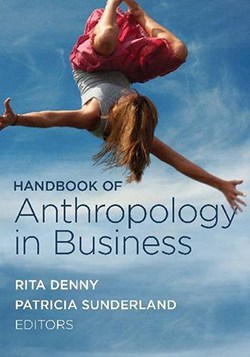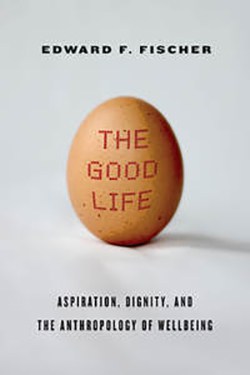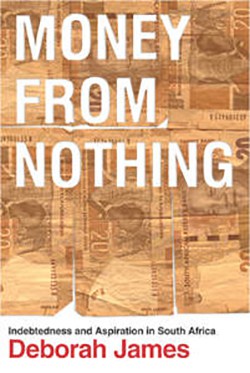Dear Readers, in the context of its thematic week, Allegra put together this curated list of recent publications, all related in one way or another to #economics. From fashion, to money, flip-flops and businesses …there is something for everyone!
If you are interested in reviewing one of these books for us, please contact Allegra’s review editor Judith Beyer @ reviews@allegralaboratory.net and she will send you a copy!
Black, Rachel E. 2012. Porta Palazzo: The Anthropology of an Italian Market. Pennsylvania: University of Pennsylvania Press. 232 pp. Cl: $49.95. ISBN: 9780812244069.
Porta Palazzo, arguably Western Europe’s largest open-air market, is a central economic, social, and cultural hub for Italians and migrants in the city of Turin. Open-air markets like Porta Palazzo have existed for centuries in Europe; although their function has changed over time—traditional markets are no longer the primary place to buy food—they remain popular destinations. In an age of supermarkets and online commerce, markets offer unique social and cultural opportunities and bring together urban and rural worldviews. These factors are often overlooked in traditional economic studies of food distribution, but anthropologist Rachel E. Black contends that social relations are essential for building and maintaining valuable links between production and consumption.

Denny, Rita M. & Sunderland, Patricia L. (ed.). 2014. Handbook of Anthropology in Business. Left Coast Press Inc. 837 pp. Hb: $139.00. ISBN: 9781611321715.
In recent years announcements of the birth of business anthropology have ricocheted around the globe. The first major reference work on this field, the Handbook of Anthropology in Business is a creative production of more than 60 international scholar-practitioners working in universities and corporate settings from high tech to health care. Offering broad coverage of theory and practice around the world, chapters demonstrate the vibrant tensions and innovation that emerge in intersections between anthropology and business and between corporate worlds and the lives of individual scholar-practitioners. Breaking from standard attempts to define scholarly fields as products of fixed consensus, the authors reveal an evolving mosaic of engagement and innovation, offering a paradigm for understanding anthropology in business for years to come.
 Fischer, Edward F. 2014 (forthcoming in September). The Good Life. Aspiration, Dignity, and the Anthropology of Wellbeing. Stanford: Stanford University Press. 304 pp. Pb: $24.95. ISBN: 9780804792530.
Fischer, Edward F. 2014 (forthcoming in September). The Good Life. Aspiration, Dignity, and the Anthropology of Wellbeing. Stanford: Stanford University Press. 304 pp. Pb: $24.95. ISBN: 9780804792530.
What could middle-class German supermarket shoppers buying eggs and impoverished Maya farmers in Guatemala harvesting coffee possibly have in common? Both groups are using the market in pursuit of the “good life.” But what exactly is the good life? How do we define wellbeing beyond the material standards of living? While we may all want to live the good life, we differ widely on just what that entails. In The Good Life, Edward Fischer examines wellbeing by exploring very different cultural contexts in an attempt to tease out universal notions of the good life and how best to achieve it.
 Hoskins, Tansy E. 2014. Stitched Up. The Anti-Capitalist Book of Fashion. Pluto Press. 256 pp. Pb: £13.50. ISBN: 9780745334561.
Hoskins, Tansy E. 2014. Stitched Up. The Anti-Capitalist Book of Fashion. Pluto Press. 256 pp. Pb: £13.50. ISBN: 9780745334561.
Beautifully illustrated with specially commissioned designs,Stitched Up delves into the alluring world of fashion to reveal what is behind the clothes we wear. Moving between Karl Lagerfeld and Karl Marx, the book explores consumerism, class and advertising to reveal the interests which benefit from exploitation. Tansy E. Hoskins dissects fashion’s vampiric relationship with the planet and with our bodies to uncover what makes it so damaging. Why does ‘size zero’ exist and what is the reality of working life for models? In a critique of the portrayal of race in fashion, the book also examines the global balance of power in the industry.
 James, Deborah. 2014 (forthcoming in October). Money From Nothing. Indebtedness and Aspiration in South Africa. Stanford: Stanford University Press. 296 pp. Pb: $27.95. ISBN: 9780804792677.
James, Deborah. 2014 (forthcoming in October). Money From Nothing. Indebtedness and Aspiration in South Africa. Stanford: Stanford University Press. 296 pp. Pb: $27.95. ISBN: 9780804792677.
Money from Nothing explores the dynamics surrounding South Africa’s national project of financial inclusion—dubbed “banking the unbanked”—which aimed to extend credit to black South Africans as a critical aspect of broad-based economic enfranchisement. Through rich and captivating accounts, Deborah James reveals the varied ways in which middle- and working-class South Africans’ access to credit is intimately bound up with identity, status-making, and aspirations of upward mobility. She draws out the deeply precarious nature of both the aspirations and the economic relations of debt which sustain her subjects, revealing the shadowy side of indebtedness and its potential to produce new forms of oppression and disenfranchisement in place of older ones. Money from Nothing uniquely captures the lived experience of indebtedness for those many millions who attempt to improve their positions (or merely sustain existing livelihoods) in emerging economies.
 Knowles, Caroline. 2014. Flip-Flop. A Journey Through Globalisation’s Backroads. Pluto Books. 232 pp. Pb: £17.00. ISBN: 9780745334110.
Knowles, Caroline. 2014. Flip-Flop. A Journey Through Globalisation’s Backroads. Pluto Books. 232 pp. Pb: £17.00. ISBN: 9780745334110.
This book follows the global trail of one of the world’s most unremarkable and ubiquitous objects – flip-flops. Through this unique lens, Caroline Knowles takes a ground level view of the lives and places of globalisation’s back roads, providing new insights that challenge contemporary accounts of globalisation. Rather than orderly product chains, the book shows that globalisation along the flip-flop trail is a tangle of unstable, shifting, ad hoc and contingent connections. This book displays both the instabilities of the ‘chains’ and the complexities, personal topographies and skills with which people navigate these global uncertainties.
 Li, Tania Murray. 2014. Land’s End: Capitalist Relations on an Indigenous Frontier. Duke University Press. 256 pp. Hc: $23.95. ISBN: 9780822356943.
Li, Tania Murray. 2014. Land’s End: Capitalist Relations on an Indigenous Frontier. Duke University Press. 256 pp. Hc: $23.95. ISBN: 9780822356943.
Drawing on two decades of ethnographic research in Sulawesi, Indonesia, Tania Murray Li offers an intimate account of the emergence of capitalist relations among indigenous highlanders who privatized their common land to plant a boom crop, cacao. Spurred by the hope of ending their poverty and isolation, some prospered, while others lost their land and struggled to sustain their families. Yet the winners and losers in this transition were not strangers—they were kin and neighbors. Li’s richly peopled account takes the reader into the highlanders’ world, exploring the dilemmas they faced as sharp inequalities emerged among them.
 Piketty, Thomas. 2014. Capital in the Twenty-First Century. Harvard: Harvard University Press. 696 pp. Hc: $39.95. ISBN: 9780674430006.
Piketty, Thomas. 2014. Capital in the Twenty-First Century. Harvard: Harvard University Press. 696 pp. Hc: $39.95. ISBN: 9780674430006.
What are the grand dynamics that drive the accumulation and distribution of capital? Questions about the long-term evolution of inequality, the concentration of wealth, and the prospects for economic growth lie at the heart of political economy. But satisfactory answers have been hard to find for lack of adequate data and clear guiding theories. In Capital in the Twenty-First Century, Thomas Piketty analyzes a unique collection of data from twenty countries, ranging as far back as the eighteenth century, to uncover key economic and social patterns. His findings will transform debate and set the agenda for the next generation of thought about wealth and inequality.
 Sassen, Saskia. 2014. Expulsions. Brutality and Complexity in the Global Economy. Cambridge, Mass.: Harvard University Press. 304 pp. Hc: $29.95. ISBN: 9780674599222.
Sassen, Saskia. 2014. Expulsions. Brutality and Complexity in the Global Economy. Cambridge, Mass.: Harvard University Press. 304 pp. Hc: $29.95. ISBN: 9780674599222.
Soaring income inequality and unemployment, expanding populations of the displaced and imprisoned, accelerating destruction of land and water bodies: today’s socioeconomic and environmental dislocations cannot be fully understood in the usual terms of poverty and injustice, according to Saskia Sassen. They are more accurately understood as a type of expulsion—from professional livelihood, from living space, even from the very biosphere that makes life possible. This hard-headed critique updates our understanding of economics for the twenty-first century, exposing a system with devastating consequences even for those who think they are not vulnerable.
 Slyomovics, Susan. 2014. How to Accept German Reparations. Pennsylvania: University of Pennsylvania Press. 384 pp. Cl: $69.95. ISBN: 9780812246063.
Slyomovics, Susan. 2014. How to Accept German Reparations. Pennsylvania: University of Pennsylvania Press. 384 pp. Cl: $69.95. ISBN: 9780812246063.
In a landmark process that transformed global reparations after the Holocaust, Germany created the largest sustained redress program in history, amounting to more than $60 billion. When human rights violations are presented primarily in material terms, acknowledging an indemnity claim becomes one way for a victim to be recognized. At the same time, indemnifications provoke a number of difficult questions about how suffering and loss can be measured: How much is an individual life worth? How much or what kind of violence merits compensation? What is “financial pain,” and what does it mean to monetize “concentration camp survivor syndrome”?
 Werbner, Pnina. 2014. The Making of an African Working Class: Politics, Law and Cultural Protest in the Manual Workers Union of Botswana. Pluto Press. 302 pp. Pb: €27.41. ISBN: 9780745334950.
Werbner, Pnina. 2014. The Making of an African Working Class: Politics, Law and Cultural Protest in the Manual Workers Union of Botswana. Pluto Press. 302 pp. Pb: €27.41. ISBN: 9780745334950.
It is now 50 years since E.P. Thompson published his classic, The Making of the English Working Class. The Making of an African Working Class follows Thompson in exploring the formation of working class identity among low-paid African workers. In arguing for a radical public anthropology of worker identity, the book seeks to analyse the cultural, legal, ideological and experiential dimensions of labour activism often neglected in other labour studies. Pnina Werbner shows that by fusing cosmopolitan and local popular cultural forms of protest, unionists have created a distinctive, vernacular way of being a worker in Botswana: one that does not deny workers’ roots at home or in the countryside, while being cognisant of a wider world of cosmopolitan labour rights. The assertion of working class dignity, honour and respect, Pnina argues, is a powerful motivating force for manual workers. Against legal-sceptical approaches, The Making of an African Working Class argues that in challenging the government – their employer – in court, manual workers’ protests and mobilisation are deeply embedded in ethics, social justice and the law.
If you are interested in reviewing one of these books, please inform Allegra’s review editor Judith Beyer @ reviews@allegralaboratory.net .
Here are our review guidelines:
Spelling: British English. Please use –ise and not –ize word endings.
Word limit: 750-1500 words
Font: Times New Roman
Size: 12
Line Spacing: 1,5
No footnotes.
If you cite other authors, please reference their publication in the end.
The review is to be written within three months from the dispatch of the book.
Please also include your name and (academic) affiliation.




Liebe Judith
Grüsse aus Bayreuth, unser panel war packed und sehr spannend.
die Bücher sind alle interessant. Piketty ein Muss. (ich bin da aber spoilt, weil ich schon zu viele Reviews darüber gelesen habe)
Ich würde gerne das Buch Anthropology in Business besprechen. Passt zum Anthropology of Investment und ich bin gespannt. Rita Denny hat insgesamt einen recht guten Ansatz…
Liebe Grüsse
Echi